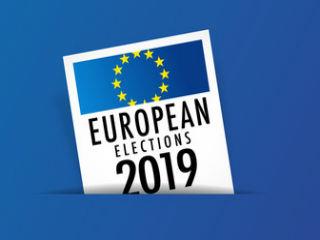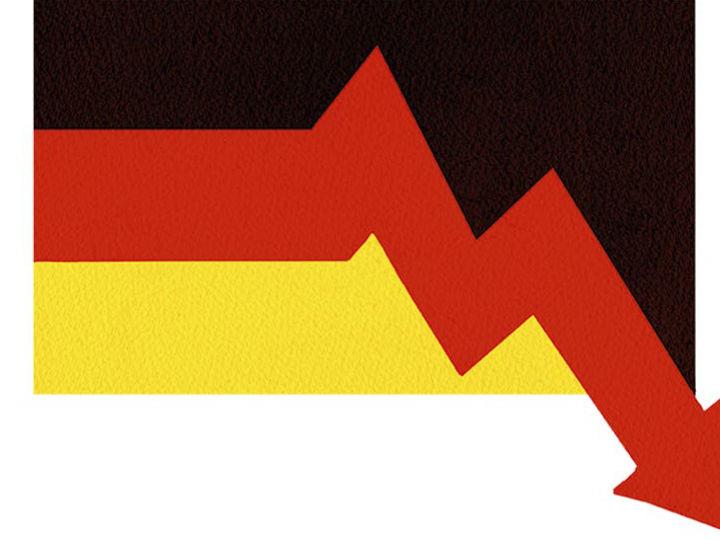EU-28. Get up to date with today’s briefing on practical arrangements for media covering the election days in Brussels. See the video recording (check under Friday 17 May 2019) and watch out for the press release in the afternoon. A compilation of country-specific election facts and key candidates is also now available online.
EU28. The video "Stop scrolling" was launched on Youtube yesterday, to remind young people to go to vote. A group of volunteer young filmmakers from various EU countries teamed up to produce the 43-second film, subtitled in 24 languages.
BULGARIA. EPP Spitzenkandidat Manfred Weber will be in Sofia on Sunday (19 May) for the main campaign event of GERB (EPP) in Arena Armeec. GERB/SDS (EPP) candidates will also attend the campaign event, which is expected to gather around 14,000 members and party supporters.
CROATIA. German Chancellor Angela Merkel will join EPP lead candidate Manfred Weber at the Croatian Democratic Union (HDZ) rally in Zagreb, Saturday (18 May). On the following day, PES lead candidate Frans Timmermans is taking part in the election convention of the Social Democratic Party of Croatia (SDP) at Croatia’s biggest port, Rijeka.
CZECHIA. Last Sunday, Prime Minister Andrej Babis said Czechia would be interested in trade or internal market portfolio in the next European Commission, in an interview for the Czech Television. Also in February, Mr Babis noted that current Justice, Consumers and Gender Equality Commissioner Vera Jourova could continue as a member of the post-election EU’s executive.
FINLAND. TV debates on EU elections with the national party leaders will take place next Monday and Tuesday (20 and 21 May), hosted by the national broadcaster YLE. A final debate is also scheduled for 23 May, on YLE.
GREECE. 1,195 candidates are standing for election on 40 different lists, according to the Supreme Civil and Criminal Court of Greece (Areios Pagos) who finalised the European Elections 2019 lists, on 12 May. Next Sunday (26 May) Greek voters will also participate in the first round of the regional and municipal elections, the second round of which will take place on 2 June.
HUNGARY. Friday (17 May) 16:00 is the deadline for Hungarians with a Hungarian address but living in another EU country to register to vote on Hungarian lists. EU-expat Hungarians who have cancelled their address in Hungary cannot vote on Hungarian candidates, unlike ethnic Hungarians in Serbia and Ukraine.
IRELAND. National broadcaster RTE is holding a series of live televised candidate debates ahead of the European Elections. Each debate will focus on one of Ireland’s three constituencies: Ireland South on Sunday (19 May), Dublin on 20 May, and Midlands-Northwest on 21 May. Commercial station Virgin Media One are also broadcasting the televised debates.
ITALY. New rules to boost gender balance in elections will apply in Italy for the first time in the European elections 2019. These rules, introduced in 2014, say that electoral lists should be composed of male and female candidates in the same proportion (50%). The first two candidates in each list must be one man and one woman (in whichever order). If a voter marks two or three candidates, she/he must include at least one female, otherwise both the second and third preferences would be annulled.
LATVIA. A “non-political guide to EU elections” will be presented at the European Union House in Riga, on Monday 20 May. Two experts will also explain voting technicalities and the role of the European Parliament.
THE NETHERLANDS. The Ballot Boxers (“de Kiesmannen”) and their sisters act the Kiesvrouwen, are young Dutch political performers who host podcasts and political shows across the country in which they explain the EU to a young audience. Their goal is to mobilise young people for the European Elections. Their next shows are in the Amsterdam International Theater (Kiesmannen) and Utrecht (Kiesvrouwen) on 20 May.
PORTUGAL. 10.76 million voters are registered for the European elections, including citizens from other EU countries. As the number of Portuguese voters living or registered abroad increased from 300,000to 1.4 million. This increase is partially due to changes in the electoral law, which made registration automatic.




 By: N. Peter Kramer
By: N. Peter Kramer

